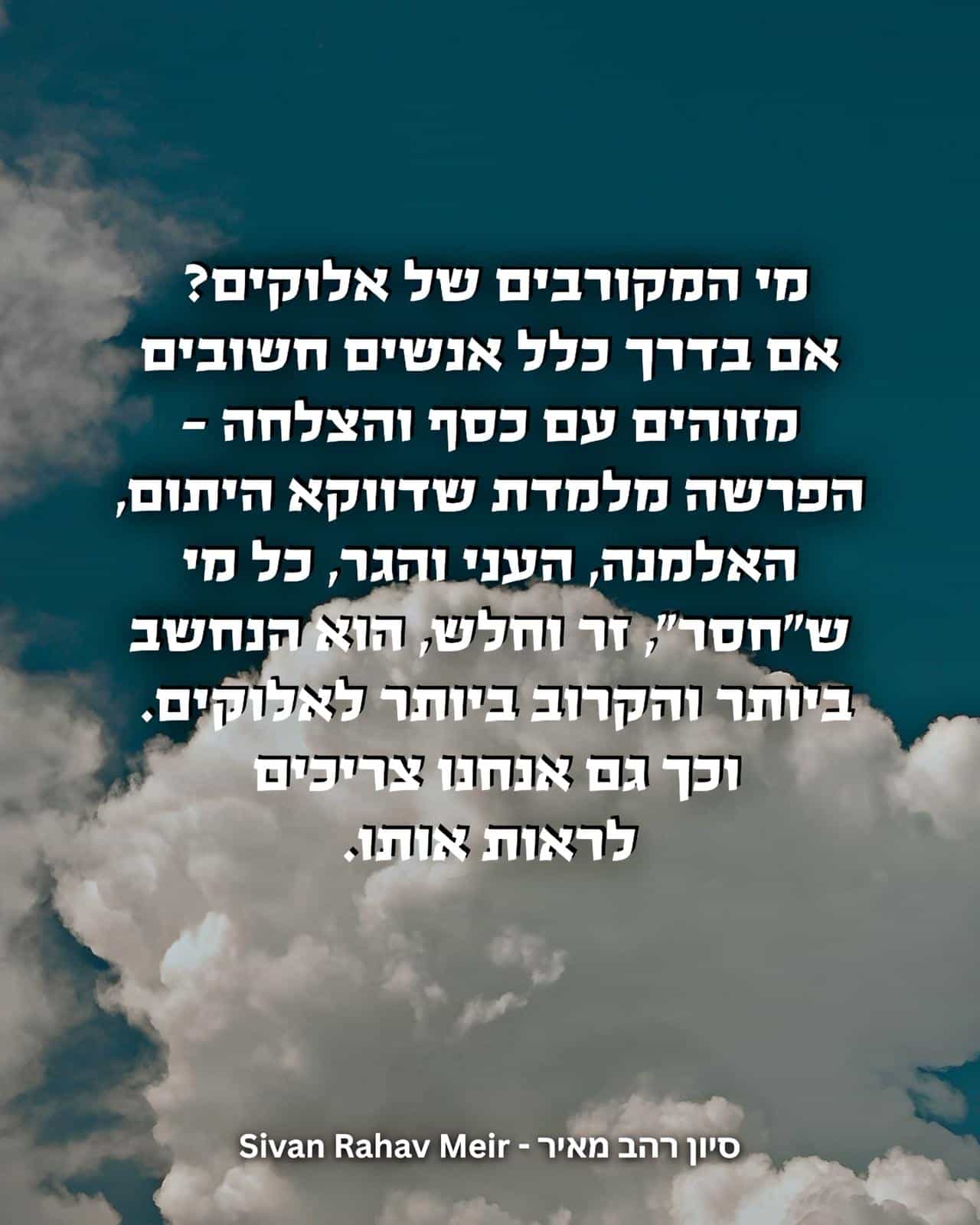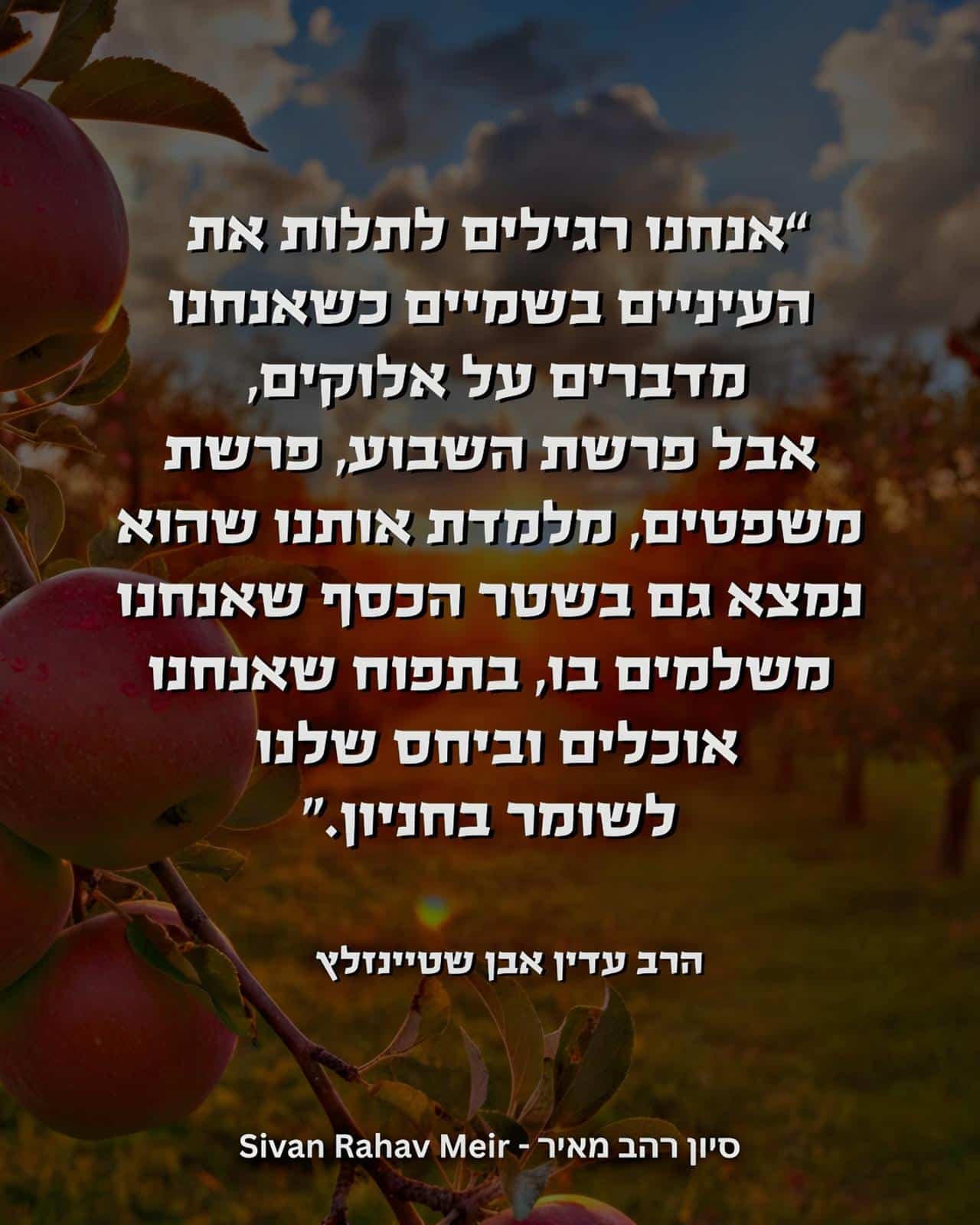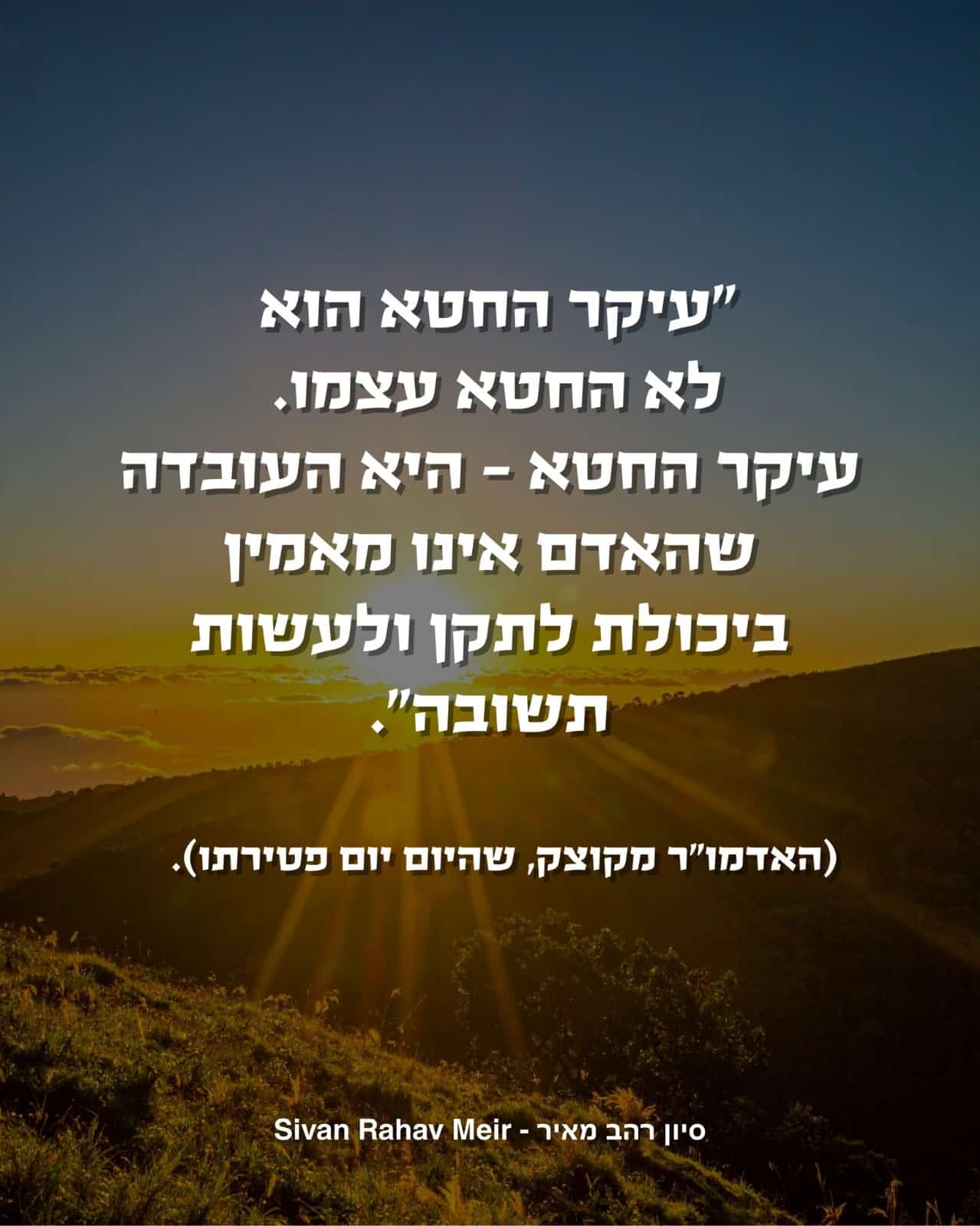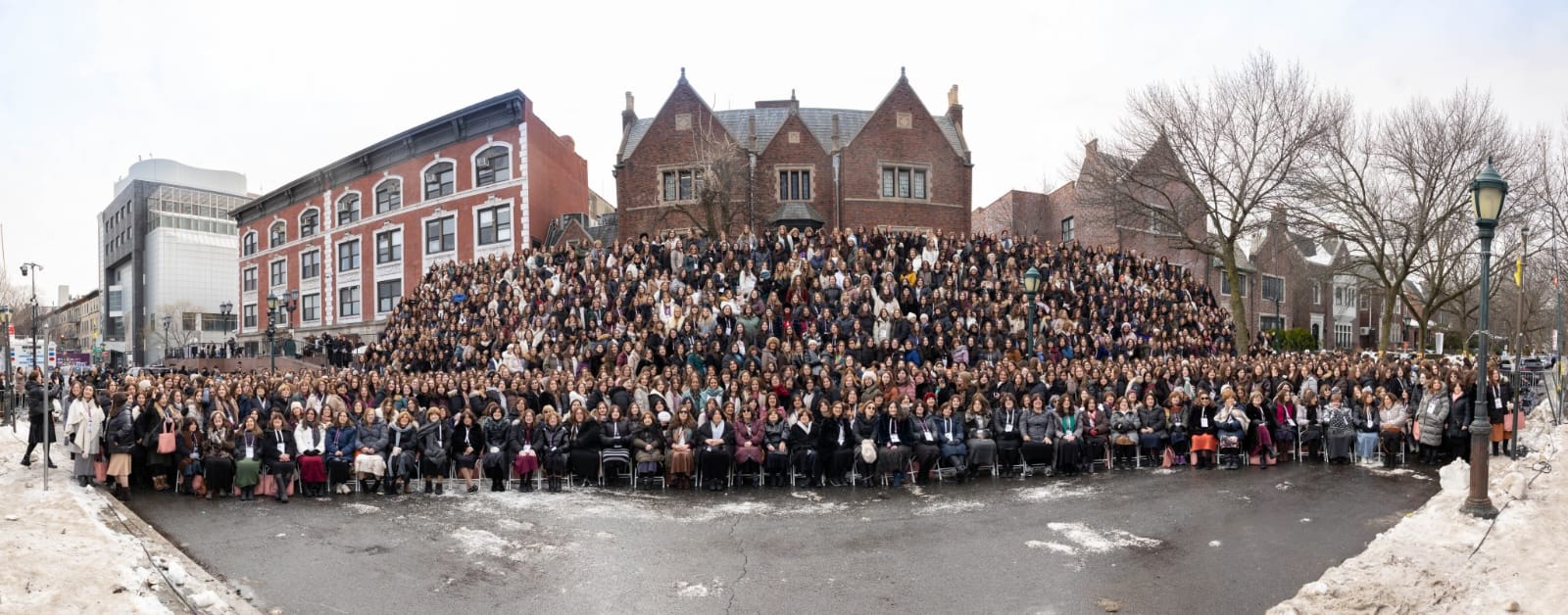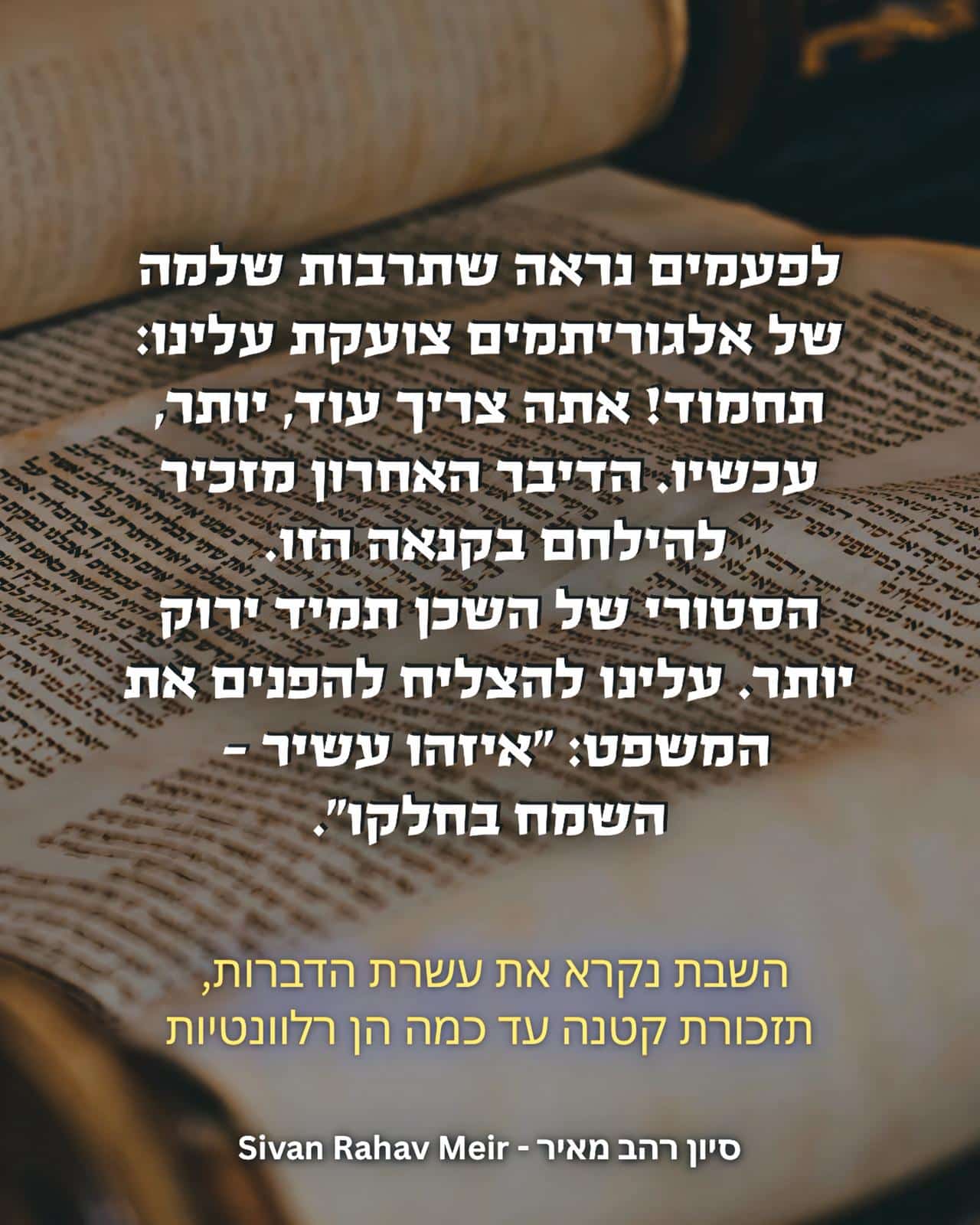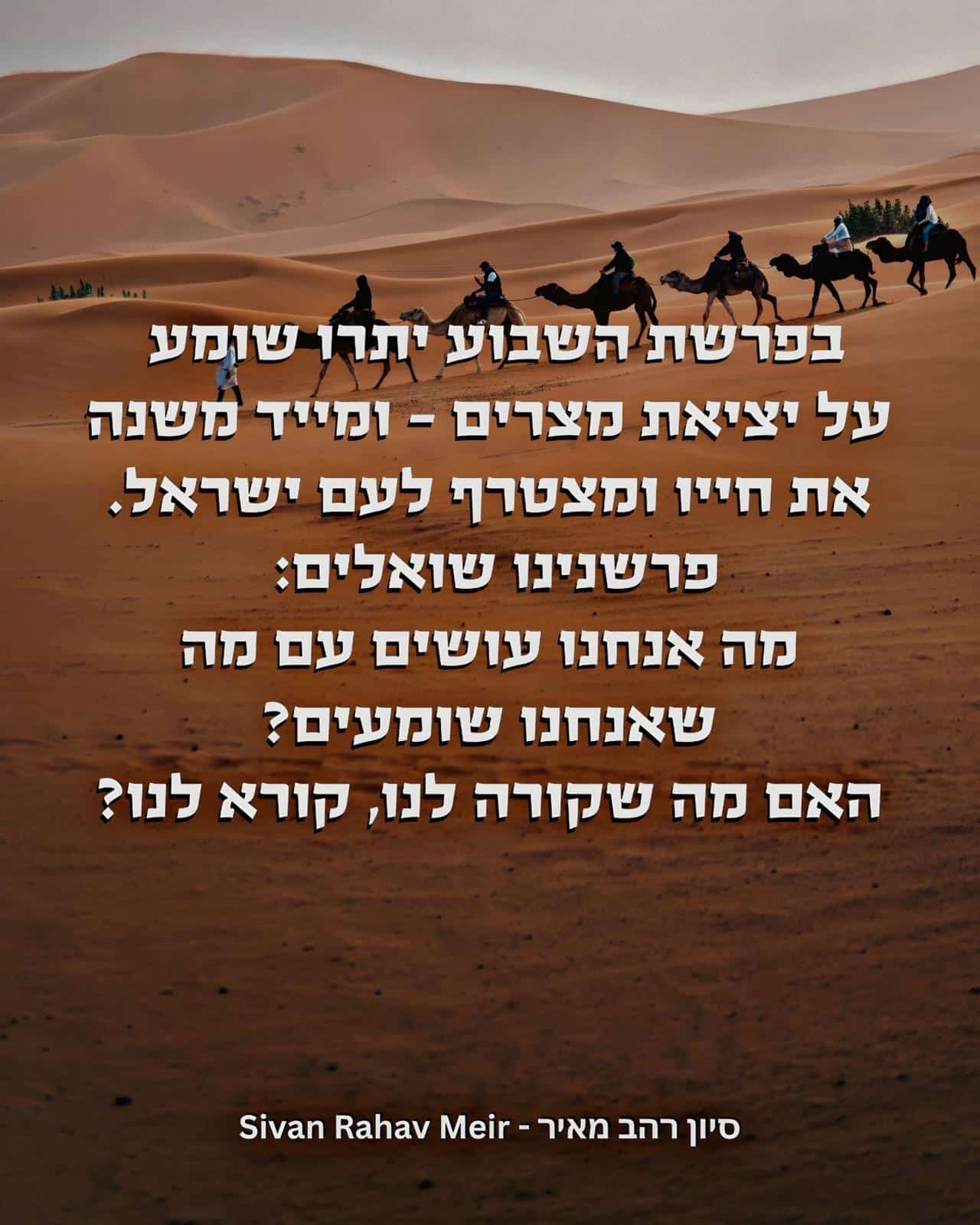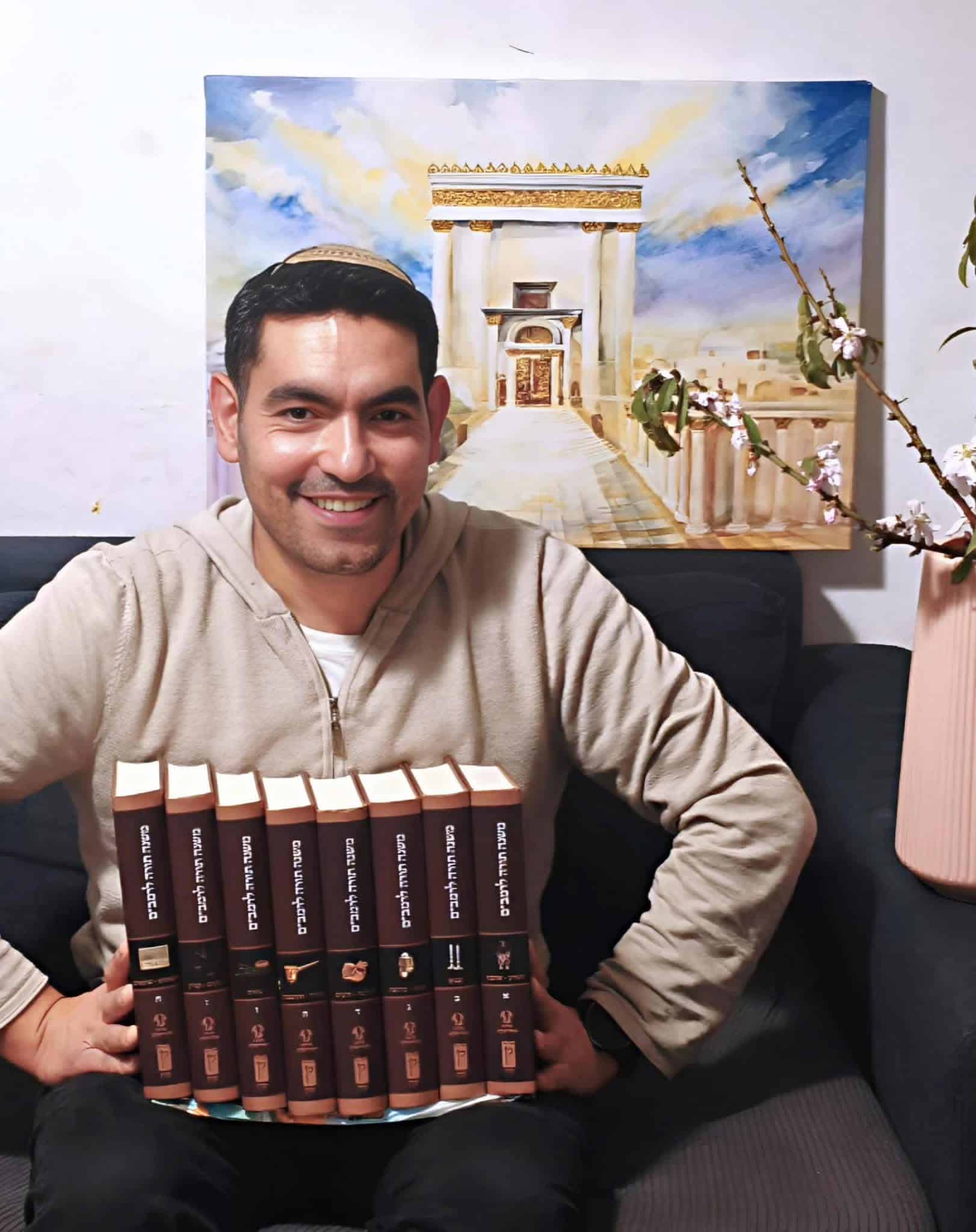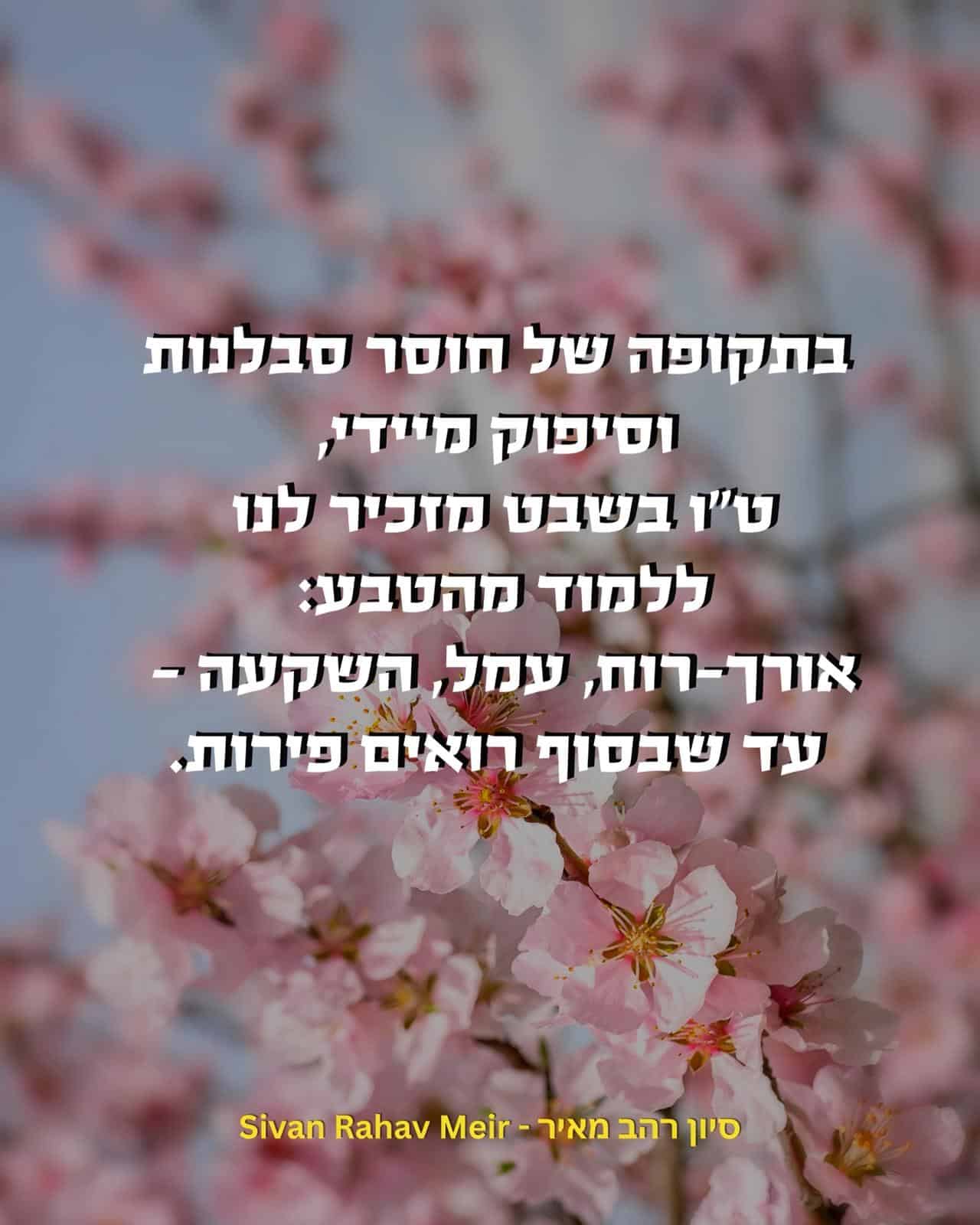* Translation by Yehoshua Siskin
1. This week’s parasha, Vayechi, is the twelfth and final parasha in the book of Genesis. The first of the five Books of Moses comes to an end, making way for the book of Exodus that we begin to read next week.
2. This parasha begins with the words “And Yaakov lived,” but then describes his passing away. Similarly, the parasha of “The life of Sara” describes her passing away. This is a message that the memory of certain men and women persists and influences us as if these righteous individuals were still alive.
3. This parasha describes Yaakov’s death-bed parting from his sons along with the personal blessing each of them receives. Some of the sons hear a rebuke and our commentators explain that criticism can also be a blessing if we learn from it. Each tribe is given a different mission but they are all united in continuing the legacy absorbed in their father’s house.
4. Yaakov also blesses his grandsons Ephraim and Menashe with words that are repeated until today. For thousands of years, parents have given this same blessing to their children on Friday night and other occasions: “May God make you like Ephraim and Menashe.” Our commentators explain that Ephraim and Menashe represent brothers who live together in harmony (unlike other brothers in the book of Genesis). Moreover, they demonstrate that it’s possible to grow up in exile, in Egypt, and still maintain a strong identity as a Jew.
5. The book of Genesis begins in grandiose fashion, with the creation of the universe. Yet it ends with the story of one family, that of Avraham and Sarah. Genesis ends with this family being transformed into a nation. In the book of Exodus to follow, this nation will have a message — after receiving the Torah on Mount Sinai — for the entire world. When the reading of the book of Genesis is finished in the synagogue, it is customary for those assembled to declare: “Be strong, be strong, let us be strengthened.


